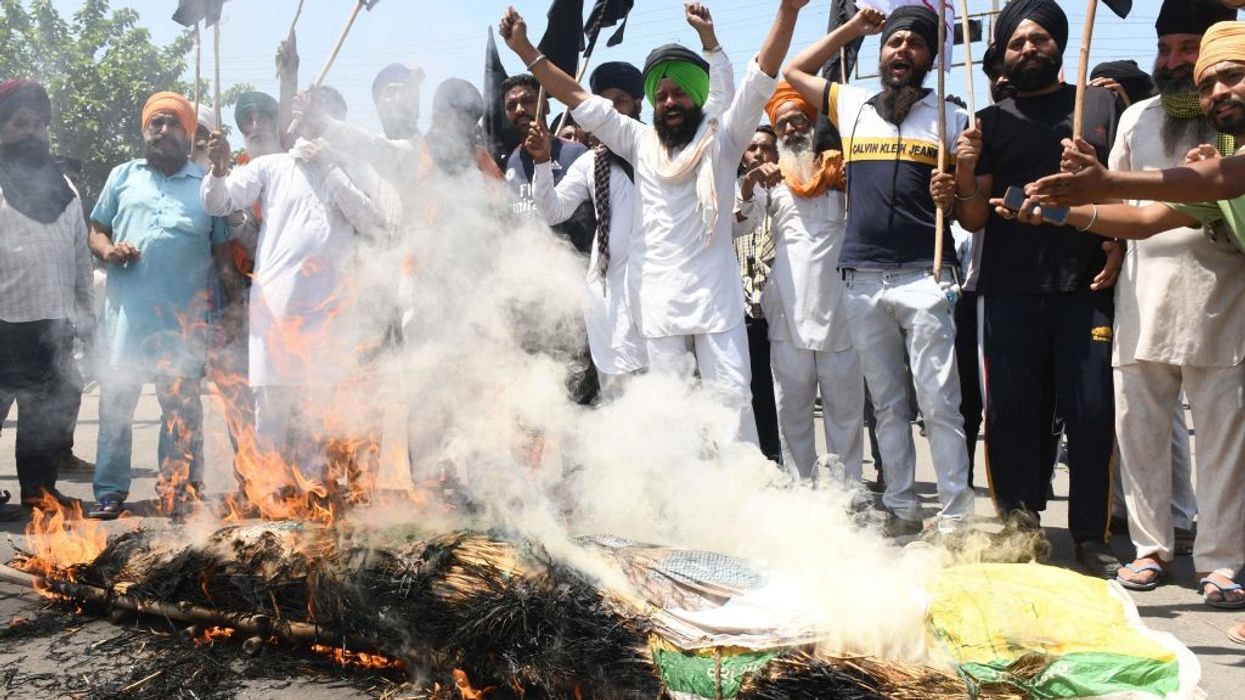INDIAN farmers agitating at three Delhi border points observed 'black day' on Wednesday (26) to mark the completion of six months of their protest against three new agriculture laws.
They raised black flags, shouted anti-government slogans, burnt effigies and took out protest marches at the three border points -Singhu, Ghazipur and Tikri- as part of the protest.
A brief ruckus was also reported from the Ghazipur protest site where farmers burnt an effigy of the central government amid heavy police deployment.
The Delhi Police has urged people not to hold gatherings due to the Covid-19 situation and the ongoing lockdown. They said that it is keeping a tight vigil to deal with any situation at the protest sites.
Senior farmer leader Avtar Singh Mehma said that black flags have been hoisted not only at the protest sites but also in villages in Haryana, Punjab and Uttar Pradesh, and villagers have put up black flags atop their houses as well as on their vehicles.
"Effigies of government leaders were burnt. This day is to reiterate the fact that it has been six months since we have been protesting, but the government, which also completes seven years in office today, is not listening to us," said Mehma.
"If the government wants us to go back then it should listen to us and repeal the laws, because we are not going anywhere unless our demands are met. It is not our hobby to sit in the heat and the cold at the borders. We also want to go back home and be safe."
Another farmer leader Kulwant Singh said: "The protesters took out a march carrying black flags. They burnt prime minister Narendra Modi's effigy while raising slogans against the three farm laws. We are urging people to support farmers by putting black flag at their residence and other places.
At the Singhu border, protestors gathered at the Kajaria Tiles office, held meetings, and staged a march.
The National Human Rights Commission (NHRC) issued notices to Delhi, Uttar Pradesh, Haryana on alleged flouting of Covid norms by the protesting farmers on Tuesday (25).
At Ghazipur on the Delhi-Uttar Pradesh border, hundreds of farmers, led by Bharatiya Kisan Union (BKU) leader Rakesh Tikait, converged into groups as they burnt an effigy of the Centre in protest.
A ruckus briefly ensued between protestors and the local police, donning anti-riot gears, who had tried to stop them from burning the effigy at the UP Gate below the Delhi-Meerut Expressway.
While many BKU supporters held black flags in their hands, several others had placards that condemned the government and demanded withdrawal of the contentious laws.
Tikait, who has been leading the protest at Ghazipur since November 2020 and had become a prominent face of the protest after the January 26 violence in Delhi, was seen sporting a black-colour turban and a black flag.
Indian farmers are protesting against three reforms — Farmers’ Produce Trade and Commerce (Promotion and Facilitation) Act, Farmers (Empowerment and Protection) Agreement on Price Assurance and Farm Services Act, and the Essential Commodities (Amendment) Act.





